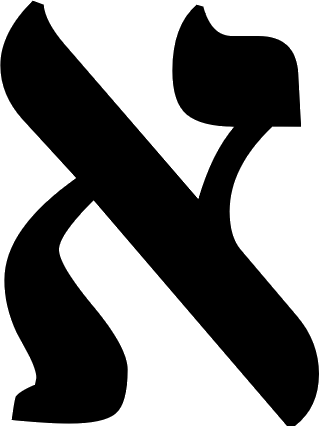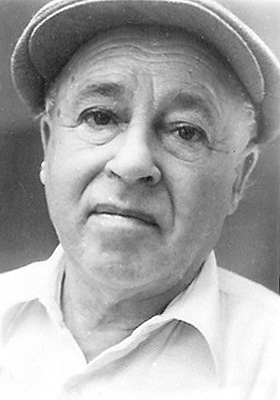|
Mapai
Mapai (, an abbreviation for , ''Mifleget Poalei Eretz Yisrael'', ) was a Labor Zionist and democratic socialist political party in Israel, and was the dominant force in Israeli politics until its merger into the Israeli Labor Party in January 1968. During Mapai's time in office, a wide range of progressive reforms were carried out, as characterised by the establishment of a welfare state and new rights in the workplace. History File:Pre-State_Zionist_Workers'_Parties_chart.png, chart of zionist workers parties, 360px, right rect 167 83 445 250 Hapoel Hatzair rect 450 88 717 265 Non Partisans rect 721 86 995 243 Poalei Zion rect 152 316 373 502 HaPoel HaMizrachi rect 552 328 884 512 Ahdut HaAvoda rect 891 301 1111 534 Poalei Zion Left rect 283 519 668 928 Mapai rect 5 665 169 1432 HaOved HaTzioni rect 697 747 918 953 Ahdut HaAvoda Movement rect 755 977 959 1234 Ahdut HaAvoda Poalei ZIon rect 775 1265 1136 1444 Mapam rect 966 1023 1232 1217 HaShomer Hatzair Workers' ... [...More Info...] [...Related Items...] OR: [Wikipedia] [Google] [Baidu] |
Labor Zionism
Labor Zionism () or socialist Zionism () is the left-wing, socialist variant of Zionism. For many years, it was the most significant tendency among Zionists and Zionist organizations, and was seen as the Zionist faction of the historic Jewish labour movements of Eastern Europe and Central Europe. Labor Zionism eventually developing local movements in most countries with sizable Jewish populations. Unlike the "political Zionist" tendency founded by Theodor Herzl and advocated by Chaim Weizmann, Labor Zionists did not believe that a Jewish state would be created by simply appealing to the international community or to powerful nations such as the United Kingdom, Germany, or the former Ottoman Empire. Rather, they believed that a Jewish state could only be created through the efforts of the Jewish working class making ''aliyah'' to the Land of Israel and raising a country through the creation of a Labor Jewish society with rural ''kibbutzim'' and ''moshavim'', and an urban Jew ... [...More Info...] [...Related Items...] OR: [Wikipedia] [Google] [Baidu] |
Levi Eshkol
Levi Eshkol ( ; 25 October 1895 – 26 February 1969), born Levi Yitzhak Shkolnik (), was the prime minister of Israel from 1963 until his death from a heart attack in 1969. A founder of the Israeli Labor Party, he served in numerous senior roles, including Minister of Defense (1963–1967) and Minister of Finance (1952–1963). Eshkol was first appointed as prime minister following the resignation of David Ben-Gurion. He then led the party in the elections to the Sixth Knesset (1965) and won, remaining in office for six consecutive years. Shortly after taking office, Eshkol made several significant changes, among them the annulment of military rule over Israeli Arabs and a successful journey to the United States, being the first Israeli leader to be formally invited to the White House. His relations with American President Lyndon B. Johnson greatly affected Israel–United States relations and later on the Six-Day War. Eshkol was active in the Zionist movement ... [...More Info...] [...Related Items...] OR: [Wikipedia] [Google] [Baidu] |
Israeli Labor Party
The Israeli Labor Party (), commonly known in Israel as HaAvoda (), was a Social democracy, social democratic political party in Israel. The party was established in 1968 by a merger of Mapai, Ahdut HaAvoda and Rafi (political party), Rafi. Until 1977, all Israeli prime ministers were affiliated with the Labor movement. The final party leader was Yair Golan, who 2024 Israeli Labor Party leadership election, was elected on 28 May 2024. A party in the Labor Zionist tradition supporting the welfare state and trade union links, the Labor Party was associated with supporting the Israeli–Palestinian peace process, pragmatic foreign affairs policies and social-democratic economic policies. The party has also been described as Secularism, secular, Progressivism, progressive, and in favour of a two-state solution. The party was a member of Socialist International until July 2018, and was subsequently a member of the Progressive Alliance and an observer member of the Party of European S ... [...More Info...] [...Related Items...] OR: [Wikipedia] [Google] [Baidu] |
David Ben-Gurion
David Ben-Gurion ( ; ; born David Grün; 16 October 1886 – 1 December 1973) was the primary List of national founders, national founder and first Prime Minister of Israel, prime minister of the State of Israel. As head of the Jewish Agency from 1935, and later president of the Jewish Agency Executive, he was the ''de facto'' leader of the Yishuv, Jewish community in Palestine, and largely led the movement for an independent Jewish state in Mandatory Palestine. Born in Płońsk, then part of Congress Poland, to Polish Jewish parents, he immigrated to the Mutasarrifate of Jerusalem, Palestine region of the Ottoman Empire in 1906. Adopting the name of Ben-Gurion in 1909, he rose to become the preeminent leader of the Jewish community in British-ruled Mandatory Palestine from 1935 until the establishment of the State of Israel in 1948, which he led until 1963 with a short break in 1954–55. Ben-Gurion's interest for Zionism developed early in his life, leading him to become a ... [...More Info...] [...Related Items...] OR: [Wikipedia] [Google] [Baidu] |
Ahdut HaAvoda
Ahdut HaAvoda () was the name used by a series of List of political parties in Israel, political parties in Israel. Ahdut HaAvoda in its first incarnation was led by David Ben-Gurion. It was first established during the period of Mandatory Palestine, British Mandate and later became part of the Israeli political establishment. It was one of the forerunners of the modern-day The Democrats (Israel), The Democrats. History File:Pre-State Zionist Workers' Parties chart.png, chart of zionist workers parties, 360px, right rect 167 83 445 250 Hapoel Hatzair rect 450 88 717 265 The non-partisans (pre-state Zionist political movement), Non Partisans rect 721 86 995 243 Poale Zion, Poalei Zion rect 152 316 373 502 Hapoel HaMizrachi, HaPoel HaMizrachi rect 552 328 884 512 Ahdut HaAvoda rect 891 301 1111 534 Poale Zion#Factions,_1920_split_and_aftermath, Poalei Zion Left rect 283 519 668 928 Mapai rect 5 665 169 1432 HaOved HaTzioni rect 697 747 918 953 Ahdut HaAvoda#Ahdut_HaAvoda_Movement ... [...More Info...] [...Related Items...] OR: [Wikipedia] [Google] [Baidu] |
Moshe Sharett
Moshe Sharett (; born Moshe Chertok (); 15 October 1894 – 7 July 1965) was the second prime minister of Israel and the country’s first foreign minister. He signed the Israeli Declaration of Independence and was a principal negotiator in the cease-fire agreements that concluded the Israeli War of Independence. Beginning in 1933, he headed the political department of the Jewish Agency. He also founded the Jewish Brigade, which fought with the British Army during World War II. A member of Mapai, Sharett's term was both preceded and succeeded by the premiership of David Ben-Gurion. Biography Moshe Sharett was born in Kherson in the Russian Empire (today in Ukraine) to the family of and Fanya née Lev (). In 1906 the immigrated to Ottoman Palestine. For two years, 1906–1907, the family lived in a rented house in the village of Ein-Sinya, north of Ramallah. In 1910 his family moved to Jaffa, then became one of the founding families of Tel Aviv. He graduated from the ... [...More Info...] [...Related Items...] OR: [Wikipedia] [Google] [Baidu] |
Alignment (political Party)
The Alignment () was the name of two political alliances in Israel, both of which ended their existence by merging, in January 1968 and October 1991, into the Israeli Labor Party. The first Alignment was a 1965 alliance of Mapai and Ahdut HaAvoda. The two parties continued to exist independently, but submitted joint electoral lists. Often called the Labor Alignment, the alliance lasted three years until a merger with Rafi (political party), Rafi in 1968 created the unitary Israeli Labor Party. The following year the Labor Party formed an alliance with Mapam, readopting the Alignment name. The two constituent parties remained separate, but with combined electoral campaigns and candidate lists. The second version of the Alignment lasted for more than two decades. At its formation in 1969, the second Alignment had 63 of 120 Knesset seats, the only time a parliamentary group in Israel has ever held a parliamentary majority. Although its majority was lost in the 1969 Israeli legislat ... [...More Info...] [...Related Items...] OR: [Wikipedia] [Google] [Baidu] |
Asian Socialist Conference
The Asian Socialist Conference (ASC) was an organisation of socialist political parties in Asia that existed between 1953 and 1965. It was established in an effort to build a Pan-Asian multinational socialist organization, clearly independent from earlier European colonial centres, yet free from the new superpowers of the Cold War. In total, four Asian Socialist Conferences convened: Rangoon, 1953 and 1954, and Bombay, 1956 and 1965. Until 1963 its headquarters was in Rangoon, Burma; the first chairman and treasurer of the conference were the Burmese socialist leaders Ba Swe and Kyaw Nyein, respectively. As of 1956, the member parties of ASC had a combined membership of about 500,000.Docherty, James C. (ed.). Historical Dictionary of Socialism''. Scarecrow Press, 2006. Background The Burma Socialist Party had expressed a wish for cooperation with other Asian socialists as early as 1946. At that time, the party was in the midst of the anti-colonial struggle and hoped for c ... [...More Info...] [...Related Items...] OR: [Wikipedia] [Google] [Baidu] |
Mapam
File:Pre-State_Zionist_Workers'_Parties_chart.png, chart of zionist workers parties, 360px, right rect 167 83 445 250 Hapoel Hatzair rect 450 88 717 265 The non-partisans (pre-state Zionist political movement), Non Partisans rect 721 86 995 243 Poale Zion, Poalei Zion rect 152 316 373 502 Hapoel HaMizrachi, HaPoel HaMizrachi rect 552 328 884 512 Ahdut HaAvoda rect 891 301 1111 534 Poale Zion#Factions,_1920_split_and_aftermath, Poalei Zion Left rect 283 519 668 928 Mapai rect 5 665 169 1432 HaOved HaTzioni rect 697 747 918 953 Ahdut HaAvoda#Ahdut_HaAvoda_Movement, Ahdut HaAvoda Movement rect 755 977 959 1234 Ahdut HaAvoda#Ahdut_HaAvoda_Poale_Zion_Movement, Ahdut HaAvoda Poalei ZIon rect 775 1265 1136 1444 Mapam rect 966 1023 1232 1217 Hashomer Hatzair Workers Party, HaShomer Hatzair Workers' Party rect 1044 572 1228 766 Hashomer Hatzair, HaShomer HaTzair rect 942 769 1177 919 Socialist League of Palestine rect 387 1275 734 1447 Mapai rect 365 1260 174 1447 Hapoel HaMizrachi, HaPoel ... [...More Info...] [...Related Items...] OR: [Wikipedia] [Google] [Baidu] |
List Of Political Parties In Israel
Israel's political system is based on proportional representation and allows for a multi-party system with numerous parties represented in the 120-seat Knesset. A typical Knesset includes many factions represented. This is because of the low election threshold required for a seat – 1 percent of the vote from 1949 to 1992, 1.5 percent from 1992 to 2003, 2 percent from 2003 to 2014, and 3.25 percent since 2015. In the 2015 elections, for instance, ten parties or alliances cleared the threshold, and five of them won at least ten seats. The low threshold, in combination with the nationwide party-list system, makes it all but impossible for a single party to win the 61 seats needed for a majority government. No party has ever won a majority of seats in an election, the most being 56, won by the Alignment grouping in the 1969 elections (the Alignment had briefly held a majority of seats before the elections, following its formation in January 1969). As a result, while only fou ... [...More Info...] [...Related Items...] OR: [Wikipedia] [Google] [Baidu] |
Poale Zion
Poale Zion (, also romanized ''Poalei Tziyon'' or ''Poaley Syjon'', meaning "Workers of Zion") was a movement of Marxist–Zionist Jewish workers founded in various cities of Poland, Europe and the Russian Empire at about the turn of the 20th century after the Bund rejected Zionism in 1901. Formation and early years File:Pre-State_Zionist_Workers'_Parties_chart.png, chart of zionist workers parties, 360px, right rect 167 83 445 250 Hapoel Hatzair rect 450 88 717 265 Non Partisans rect 721 86 995 243 Poalei Zion rect 152 316 373 502 HaPoel HaMizrachi rect 552 328 884 512 Ahdut HaAvoda rect 891 301 1111 534 Poalei Zion Left rect 283 519 668 928 Mapai rect 5 665 169 1432 HaOved HaTzioni rect 697 747 918 953 Ahdut HaAvoda Movement rect 755 977 959 1234 Ahdut HaAvoda Poalei ZIon rect 775 1265 1136 1444 Mapam rect 966 1023 1232 1217 HaShomer Hatzair Workers' Party rect 1044 572 1228 766 HaShomer HaTzair rect 942 769 1177 919 Socialist League of Palestine rect 387 1275 ... [...More Info...] [...Related Items...] OR: [Wikipedia] [Google] [Baidu] |








